Deus Ex: Invisible War
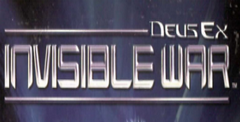
| a game by | Ion Storm Inc., and Capcom |
| Platforms: | XBox (2003), PC (2003) |
| Editor Rating: | 7.8/10, based on 2 reviews, 9 reviews are shown |
| User Rating: | 9.0/10 - 2 votes |
| Rate this game: | |
| See also: | Sci-Fi RPG, Stealth Action, Espionage Games, Deus Ex Series |
Thanks to developers Ion Storm, the world of Deus Ex is back with another dark storyline to offer, and this time available on games consoles, as well. Approximately 20 years after the events of the first game, the World has just about recovered for a catastrophic economic depression. While the World is a weakened state however, a few pesky religious and political factions see an opportunity to reshape the world and governing bodies to suit their agendas and gain power for decades to come. Who’s going to stop them? Why you are, of course.
The Plot
The whole idea of the game is that you play as a member of a resistance force that is battling against the dark, brainwashing forces of evil in attempt to fix the world back up again. A game with a first person narrative, Deus Ex 2 sees you armed with many weapons and abilities such as guns, biotech modifications that allow you to see through walls, leap through the air and globe-hop, and the uncanny ability to end conflict through your… words? Huh?
Yes, it seems that despite all these cool devices and advances in technology, one of the game’s aims is to show you can end conflict though peaceful, non-violent means, allowing players to make an ethical statement through their actions.
What Was Great
If you like the original then you’ll like most of what this one has to offer. There are some slightly controversial decisions included, such as the universal ammo feature (meaning you can stick to one weapon the entire time without ever running out of bullets) that kind of takes the realism away from the game, but if its convenience that you’re after, then who cares? While it’s usually also my pet peeve, the dumb AI is actually in your favour in this game, as easily shooting one guard automatically signals another to run your way, and after a while you have a pile of bodies at your disposal.
What It Lacked
Yes it’s from 2003, but my goodness are the graphics in this game clunky? The animation hasn’t changed too much from the original, and functions such as grenade throwing are a bit on the dismal side, with every throw making the grenade bounce around madly. It’s not too convenient. The jump to console platforms really dumbed down many of the controls as well, such as those involving conflict, exploring and even the limited inventory management.
In Summary
If you liked the first game then you’ll probably enjoy this one too; however the detrimental changes that come with sharing the platform with consoles will probably irritate you. As games go, Deus Ex 2 is pretty okay. It’s got enough to entertain you and there’s an interesting plot at the centre of it; the question is really if you’re bothered to get through all the dull parts to enjoy it.
Pros
- Lots of cool mechanics and devices
- Interesting story
Cons
- Clunky. Very clunky.
- Console controls really hamper the game
5/10
Download Deus Ex: Invisible War

System requirements:
- PC compatible
- Operating systems: Windows 10/Windows 8/Windows 7/2000/Vista/WinXP
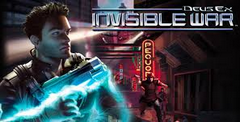
System requirements:
- PC compatible
- Operating systems: Windows 10/Windows 8/Windows 7/2000/Vista/WinXP
Game Reviews
Mow this is a big game. Deus Ex 2 by Ion Storm Austin. Sequel to the amazing Deus Ex -winner of more than 35 Game of the Year awards worldwide, including ours. Led by the legendary Warren Spector, the developers are pulling out all the stops to refine their 'futuristic action RPG franchise and are pretty much starting from scratch. The neo-sci-fi setting, some old characters and some old locations will stay, but almost everything else will change. I For starters, this time you’ll be able r to play as either a boy or a girl, and your choice will have an obvious effect on NPC responses.
Secondly: Augmentation - the upgradeable skills that drive the player character - are to be much simplified this time, with three upgrade levels instead of four. The developers are removing redundant skills, merging others, and enhancing those that almost worked last time, but didn’t quite. There will also be a complete set of black market Augmentations purchasable from dodgy men in dark alleys.
Critically, gameplay will be even more open-ended this time, and the environments much more tactile. Almost everything will be moveable or breakable. The developers claim that, at times, Deus Ex-2 will become something of a "sandbox". Which, in plain English means you’ll be able to just experiment with whatever you find to make your own fun. Whether we’ll get to throw dead bodies off skyscrapers again, though, is anyone’s guess...
This time Ion Storm really want the player to be able to complete the game without touching a weapon. This is something they wanted to do for the first Deus Ex, but time constraints meant a lack of fine-tuning, making the unarmed approach extraordinarily hard. In Deus Ex 2 taking the stealthy route will be a much more enjoyable experience. That said, a slew of new ordnance is also to be included for trigger-happy Deus Ex-kateers, but all the developers are saying about those at the moment is that they will be "devilish, just evil". Which is no help.
Technologically Ion Storm is starting from scratch, licensing in the most advanced middleware available for both graphics (Unreal Warfare engine) and physics (Ireland-based Havok engine), as well as dedicating crack in-house teams to Al, sound, graphics and modelling. We’ve already seen what Unreal Warfare looks like (amazing), but we’ve yet to experience the delights of the latest advances in real-world physics. In DX2 bounce attacks will be'possible, including lasers off mirrors, and concussive attacks that knock things over. Bodies and other objects will bounce more correctly (looks good on the skyscraper front then - Ed) and climbing will become more of an issue.
The storyline is a closely guarded secret at the moment, though we do know that DX2 is to be set some 15 years after the original, and will feature the return of JC Denton in some way. An older, fatter JC Denton? Now that would be funny.
Austin, Texas n the US of A. It’s early February, but the dry heat of the midday sun is already scorching the wide, immaculately swept streets in their strict mathematical grids - the town planners here had the luxury of having hundreds of square miles of desert to play with. Just north of the Lone Star State's gleaming capital lies Dallas, which on November 22,1963, became the notorious setting for the assassination of president John F Kennedy. When we mentioned that one of the world’s most famous conspiracies supposedly took place only 180 miles away to the creator of the conspiracy-filled first-person shooter/RPG hybrid Deus Ex, he completely pulled the rug on us. "The amusing thing is I don't believe in any of that stuff. Ask anyone. I believe - and I’m not kidding here - that Lee Harvey Oswald acted alone in killing JFK. I absolutely do not believe in conspiracies."
PC is here at Ion Storm Austin with studio director Warren Spector to playtest the latest build of one of the most eagerty-awaited sequels in videogame history -Deus Ex 2: Invisible War. The development team, which also includes producer Bill Money and project director Harvey Smith, is understandably excited about showing off the new game, which has only very recently come together in playable form. "The best thing about getting to do a second game like this is you get to look back at the first game and think about what we got right, and what we got wrong so you can address it," says Spector.
"A lot of people say that a second game stifles creativity -1 simply don’t buy that."
New Beginnings
Invisible War begins with a disturbing intro FMV that was shown to us in an early 'animatic’ form - basically a rough cut to give an impression of the finished product. As atmospheric electronic music kicks in, the camera zooms into a scene in downtown Chicago where a figure is desperately evading the attentions of several futuristic helicopters and troopers. The action moves deep within the headquarters of the powerful TARSUS group, where two figures are discussing the appearance of a terrorist who may be targeting their organisation.
Cut back to the streets where a hooded figure steps out into traffic and takes out a Nanite Detonator. Robots try to tackle the terrorist, but he snaps the purple vial releasing a wave of energy that begins to spread out, disintegrating everything around it. People run away, screaming bnefly before they are destroyed in a millisecond, as the two figures from TARSUS manage to escape from the destruction of the city in a waiting helicopter. "We aren't equipped to fight a war!" says the woman. "We're going to change the terms of engagement," replies the man. "We don’t need cities or armies. We have the cells of human bodies. An invisible weapon for an invisible war."
Set 15 years after the onginal Deus Ex. Invisible War delivers a dark, dystopian world in which nano-technology is widespread, and a catastrophic worldwide economic crash has left various sociopolitical factions fighting for power. You play as Alex D, a next-generation clone of JC Denton, and have the choice of being male or female. Apart from having repercussions on how the game plays, this has also meant a massive amount of work for Ion Storm to implement thousands of voice lines for each gender - as well as options for skin tone, hair and clothing. Alex D begins the game being sheltered by TARSUS, and after escaping from the destruction of Chicago, makes for a Seattle facility where he/she meets other augmented humans from the same expenmental program.
When asked about which of Deus Ex's original three endings Invisible War has picked up from, Spector insisted that the team keep schtum. "One of the things we did on the first game was that we didn't talk about the story much at all," explains Spector. "Deus Ex was a game about conspiracies and mysteries that the player got to solve, and Invisible War is pretty much the same thing. Gamers discover stuff and it really means something to them as they play."
Harvey Smith did won't be seeing JC waking up in his apanmem, ruooing the sleep from his augmented eyes and sighing with relief that Deus Ex was all a bad dream. "No, it's nothing like that! In RPGs you start the player off fresh, so you can build them up again. But we didn't want to do something cheesy like making the player JC again. You're playing Alex D who has genetically descended from JC, so you're almost him, but you're still separate. A cool thing is that you can actually take JC on in a fight. He'll be pretty formidable."
Power To The People
Ion Storm went on to explain the changes they have made to the nanotechnology upgrade system (a techno version of RPG level-ups) used to boost your player character. "A huge part of the game is that you can power yourself up in different directions-two people can end up with radically different interpretations of their abilities," continued Smith. In the original Deus Ex you had a choice of nine augmentations for specific body areas to improve physical attributes, and 11 other skills including lock-picking and computer hacking. For Invisible War, the skills and augmentations have been unified into a single system known as bio-modifications, that are powered by your rechargeable internal energy supply.
The Body Shop
Each of the 21 or so bio-mods offers two types of upgrade, such as the choice between a spy drone or enhanced vision for the eyes. In addition, the nine player bio-mod slots have three levels, each with a dramatic change of function. Alex D's enhanced vision bio-mod, for example, can progress from night vision on level one. to seeing people through walls on level two, and finally to being able to see both organic and non-organic objects through walls on level three.
You'll also be able to buy black market bio-mods (and weapons) from a creepy organisation of rubber mask-weanng gangsters called The Omar. Among these illegal upgrades are a very smart bot domination augmentation (see I, Robot boxout) and a health regeneration drone that coalesces out of thin air and proceeds to look for corpses or unconscious bodies that it can break down into useful cellular material, like a high-tech vampire.
Another new addition is the ability to change any of your bio-mods once they've been installed. "A lot of people thought that in the last Deus Ex they got trapped into their powers, that they couldn’t change their skills and augmentations after they’d chosen them," continues Smith. "What we’ve done is allow you to install something over the top of an old bio-mod, restoring it to level one. But although you’ve been able to change bio-mods, you might not be able to max out the new mod to level three."
Deus Ex: Invisible War continues the globe-trotting nature of the first game, visiting Chicago, Seattle, Antarctica, Cairo, There in Germany and another unrevealed final location. One of Ion Storm’s main objectives from a design perspective is to make sure the game differentiates itself enough from the movie, The Matrix. "When The Matrix came out it had guys wearing long, black trench coats and we were like. 'Damn!’ Deus Ex is a futuristic sci-fi game where everyone wears long, black trench coats, what are we going to do now?" complains Smith. "So, for Invisible War we wanted to come up with a slightly different look and are currently working on some new concepts. It’ll be different, but people should still recognise it as Deus Ex." Each character model is made up of 3,000 polygons, but because of the dynamic lighting used in the Unreal engine, it looks much higher - an ingenious technique used throughout DX2 to produce 3D textures from flat surfaces, resulting in graphically richer environments. Returning characters such as the Hong Kong scientist Tracer Tong (being kept alive by life-extending nano-bots), now have realistic facial expressions and deep scars that catch the light, while soldiers have combat fatigues that wrinkle. On top of this, metal robots and rubber floors really look like they are made from real materials, complete with shadows that move correctly across their surfaces.
"For many other games, dynamic lighting and real volumetric shadows are just pretty pictures - they are there to make the game look cool." says Spector. "But for us it’s gameplay. You’re going to be able to truly create your own darkness in which to hide, and the Al is tuned to support that kind of stealth, as well as notice when lights have changed."
The Light Fantastic
Every light in DX2 is dynamic rather than fixed, which apparently comes at no extra performance cost - Ion Storm is working towards 30fps running on a minimum spec PC of around a Pentium III 850 and GeForce 3-level graphics card. An explosion in a room will cause the light fittings to sway, changing shadows in realtime. Flares can be used by your character to illuminate dark areas and new flying hunter-killer robots with built-in lights can throw their beam on you to reveal your supposedly well-hidden position.
As producer Bill Money walked us through the Antarctic base level, he showed off various other graphical jiggery-pokery including the smoke and fire effects from Alex D’s flamethrower, the air conditioning fans that project shadows on the floor, and the first examples of the impressive new Havok physics system. Although Ion Storm refers to it as 'version 1.0’, the results are already very cool. For example, if shot at. barrels now send out steady jets of ominous green gas from different angles depending on where they were hit. "Everything we have in the game we try and use for some kind of gameplay, so there are bio-mods that allow you to survive in toxic environments," adds Money. "You can be the guy who shoots gas barrels so a room is full of poisonous fumes and then craftily leads enemies into it, where they'll choke to death." Yet the most disturbing aspect of the physics technology will be familiar to PC gamers who’ve played any recent first-person shooters - ragdolls. In Deus Ex, death animations were pre-animated, so that enemies who died side-by-side would assume the same pose, as well as sticking out over ledges and stairways in a highly unconvincing impression of rigor-mortis.
Not anymore. Human and robot characters are now modelled in 3D and given a mass and weight in the virtual environment, with certain physical restrictions to prevent arms from bending the wrong way or turning people into squid (see the physics special report on page 16 for more details). "Ragdolling is really creepy." says Smith. "It actually makes you stop and think about the fact that you’ve just taken down a human being."
Everybody Wants To Rule The World
The genius of Invisible War, like Deus Ex, is that decisions you make at particular points in the game will have massive repercussions on what happens next. Your allegiances change considerably as part of multi-branching storylines that will present the player with no less than four different endings. And which organisation you team up with ultimately affects your relationship with the others.
The long grasping fingers of the Illuminati return once again, as does a pseudo New Age religious group called The Order, the Wodd Trade Organisation (WTO). The Templars, and the corporation that shields Alex D at the beginning of the game. TARSUS. And did we mention JC Denton? "A lot of the time the organisations will send you on missions that are mutually exclusive," says Smith. "As a result we reveal different characters and doors in a mission, so they play a little differently depending on who your friends and enemies are."
Bullet Time
After the excellent demonstration of the game by the DX2 team, there was only one thing left to do - play it. Ion Storm gave us a unique hands-on play of a level set in the Seattle penthouse apartment of a character called the Minister of Culture. We began outside the door of the Minister's gaff and decided to try to con the security guard to let us in, using Deus Ex's adventure-style speech interface to speak into the intercom. No luck. Of course we could’ve also hacked the keycode with a multi-tool, or maybe looked for a handy air-duct, but in the end we picked the lock of a service door leading to the roof above the flat.
Stop Thief!
Up top. an aerial security bot was patrolling the area, only giving us time to get into the apartment through the glass skylights - also guarded by the familiar red glow of a laser-triggered alarm system.
This was where we could test out the new ability to add modifications to weapons, allowing you to custom-make your own armoury. We had a blaster fitted with a stealth modification that changed the basic weapon into a blaster stabilizer - an espionage tool that can melt glass without setting off alarms. Another example of a weapon mod is the targeting computer that makes bullets swarm towards your foe like hornets - although the team hasn’t decided yet how many mods linals. you’ll be eventually allowed to add to your home-made bang stick.
Once we used the blaster stabilizer, we could sneak into the apartment undetected. But it goes without saying that in the DX2 world we could’ve found numerous other ways into the flat, including cutting the power to the alarms. Inside we found the Minister in the kitchen, and feeling particularly violent, we emptied a few rounds into his head, dropping him to the floor in a heap. Though it’s not implemeted yet, Spector promises that they won’t shy away from blood either. "This isn't a fetishistic thing, though. It’s about letting players do what they want, and showing them the consequences of their actions. If you go through the game shooting at everything that moves, there is a price to pay - and it’s a stiff one."
Instead of having to search bodies, characters now just drop any weapons or health they have, leaving the body free for you to pick up and dump in a comer away from prying electronic eyes. The Al of all the robots and humans in the game is still being tweaked to ensure that the behaviour is as realistic as possible, so guards will actively look for you if a body is discovered for example - but it’s a massive undertaking with the fact that every object in the Deus Ex 2 world is dynamic. "What other game has to cope with the fact that you might throw a chair in front of a character?" asks Spector. "The Al also has to respond to whether you killed anybody - a friend, an enemy, or a hundred people. Plus we have Al that actually exploits the kind of lighting were doing. Nobody in the world has ever done that!"
Conspiracy Theories
Warren Spector, Bill Money, Harvey Smith and the rest of the Austin team still have many months of work ahead, but the signs are that DX2 will eclipse its illustrious predecessor in every way. There are still no plans for any multiplayer options as, according to Smith, "Our number one priority is making a game that's loyal to the first one. Down the road we may do level co-op or something, but it's a whole new set of design challenges."
With ground-breaking adaptive Al, cool futuristic weaponry, multi-branching storylines, unscripted challenge-solving and four different endings, Invisible War is a sci-fi action RPG that everyone should be gasping to play.
But is Spector really sceptical of the conspiracy theories in his games? "In my experience, human beings are not capable of keeping secrets. Anything that the conspiracy buffs really believe, we would simply know about. I can point you to the real-world research on nano-augmentation going on. In fact, there was some conspiratorial stuff that was so off-the-wall, if we'd put it in the game.
I, Robot
Dominate The Robots In Deus Ex2: Invisible War
One of the best new illegal bio-mods on the market in Deus Ex 2 is Bot Domination. This handy little skill allows you ten seconds to hide your body somewhere safe, before your consciousness is transported into any neartoy bot You’re now presented with the robot HUD, and can use any of the machine's abilities - ranging from the powerful destructive weapons in the giant military bots, to the accessibility and spying qualities of the little cleaner bots that can sneakily find out access codes and other information from unsuspecting enemies.
The New Deus Ex2 Heads-Up Display
Warren Spector was not happy with the HUD from Deus Ex, and with those in early versions of Invisible War. "I lost count of the times I said I wanted an interface that looks as if it’s burned onto the guy’s eye, and I failed completely to communicate that idea. Now I think we’ve nailed it" The new translucent circular retina effect looks very smart indeed, with everything rotating round neatly, elements fading in and out, and screens zooming into view. "The fact that you have access to a keyboard doesn’t mean that it’s right to use every key. The PC version of Deus Ex was so unnecessarily complex with many secondary screens that distracted the player and pulled them right out of the game world. On the PlayStation 2 version we found that we could be much more economical and enhance the experience."
I'm About To get controversial, so unless you're easily offended I suggest you go to the Hitman review which is less flame-baiting and has jokes about baldies in it. Ahem, cough. Ready? Deus Ex: Invisible War isn't actually that good. There I've said it. Can's open, worms are wriggling, cats and bags are in a state of separation.
Actually, this isn't that controversial. Almost everyone recognises Invisible War's flaws. Its simplification due to Xbox. Its illusory mask of freedom that isn't nearly as deep as it would like to believe. Its ultra-confusing story. Its basic lack of Deus Ex-ness. For all the technical competence on show, it will always be a pale shadow of its forebear and as such, a disappointment.
We might have thought Deus Ex was near perfect, but Ion Storm has taken a very critical look at it and is working hard at improving every single area for the sequel. As you can see, the graphics, which were such a low priority on the first title, are being given pride of place this time with the use of the latest Unreal technology. Not at the expense of anything else though. Most people's criticisms of Deus Ex concentrated on Al issues, with enemies behaving stupidly at times in order to keep the difficulty level down. This area is undergoing major improvements, as Ion Storm sets out to create the most realistic and detailed interactive experience in any game yet. The story is still incredibly important of course, but you'll have so much you can do and so much freedom in how you do it you might just spend a few weeks living in the environments and feeling part of a fully realised universe.
As you probably already know, the story is set 15 years after the end of the first game and, while JC Denton will be making an appearance, you'll take the role of a young male or female character with a whole world to explore - one forever altered by the events of Deus Ex. And if you're feeling disappointed about the lack of multiplayer: get over it. There are dozens of great online games in the works already, but the singleplayer experience Deus Ex 2 will offer will be totally unique. We guarantee it, and we'll be back with an in-depth preview next issue.
There Are still precious few details on this mega-sequel, but that doesn't stop us from saying that Deus Ex 2 will be one of the best games of 2003. Seriously, this is what PC gaming is - or should be -all about: creating a whole believable world full of depth and detail, and giving you the freedom to do almost anything you can think of in it. Oh, and let's not forget the epic story that's affected dynamically by your actions, the choice to approach danger through stealth or action and an atmosphere so immersive you forget you're playing a game at all. And that's just the first game. DX2: Invisible War should be all that to the power of ten. For starters, the latest Unreal technology guarantees a beautiful world and a far more fluid gaming experience. The environment will be even more interactive thanks to spot-on physics, and an impressive new shadow system will make stealth a more intuitive and viable choice.
The Al will be much better too, not only in enemies but every single living creature you meet and talk to. And talk you will, because there's three times more dialogue this time. The skills system (the RPG side of the game) is also changing, with augmentations giving way to biomods, which will be less finicky to implement. There are also black market biomods, if you want your character to have a darker edge.
Story-wise, we only know that you'll play the successor to JC Denton 20 years later, created by the same experimental laboratory, and that you'll have the choice of a male or female version of the character. And, frankly, that's all we need to know. We wouldn't want to spoil the next step in PC gaming evolution.
If You'd care to turn to the Rear View section of the magazine, you'll see that sitting proudly atop the role-playing game column in PC A-List is Deus Ex. In case you have difficulty locating it, it's the one with the picture of a guy who evidently forgot to remove his spectacles from their case before putting them on.
Now Deus Ex (pronounced juice sex' if you happen to be of North American origin or dayasex' if you're English) is perched where it is for one very good reason: because Ion Storm's debut sci-fi thriller is one of the most intelligent and absorbing titles ever committed to CD-ROM. It's also a game that, along with Half-Life and Solitaire, is one of the few that it should be your duty to play. From the intricate layering of gameplay styles through the tangled web of its branching techno-thriller plot, Deus Ex remains as invigorating today as it was three and half years ago, despite the obvious graphical senility.
In With The New
Sadly, nothing lasts forever, and living almost single-handedly propped up the genre for most of the 21 st century, it looks like we ll be seeing a new game ruling PC role-playing roost next month. When you Sder that most games have about much longevity as a free-range egg, Deus Ex has had a bloody good innings. What's more, seeing as it won't be falling far down the PC pecking order, we shouldn't be too mournful - especially now the sequel Invisible War is done, dusted and ready to take the rightful place of its illustrious predecessor. Sadly, it's with regret that I must inform you I just lied. Turn a few pages and you'll find the game which will replace the first Deus Ex at the top - Star Wars: Knights Of The Old Republic.
Put bluntly, Invisible War isn't nearly as good as its illustrious predecessor. There are RP elements of course, but essentially, Invisible War is a first-person shooter - admittedly a very, very good one - but not what we were hoping for, expecting or in the case of a great many fans, demanding.
The changes have come about, whether Ion Storm or Eidos choose to admit it or not, thanks to the concurrent development of both Xbox and PC versions of the game. As Ion Storm learned during development of the PS2 version of DX1, it's infinitely more difficult to take a game from the PC to console than it is from console to PC.
By necessity then, it seems that greater emphasis was put on making the console version more accessible, and as such seemingly insignificant PC-specific features that helped foster a sense of realism have been taken away. And all this because the over-sized Xbox controller can't deal with them.
Say It Ain't So
The developer has had to simplify much of the mechanics of the game - and as is so often the case, there's a fine line between streamlining a game and dumbing it down. It would be a touch unfair to accuse Ion Storm of wholesale retardation, but it's certainly true it's taken simplification a touch too far for the likes of us PC players, who like nothing better than to wear away every key and button we have available to us.
It's the interface that has obviously received the most attention. Whereas before the inventory's capacity was based on the size and weight of each item, this time round it's simply comprised of a number of slots (one per item), a la Resident Evil. So, a packet of cigarettes will take up the same space in your backpack as shouldermounted rocket launcher clearly sick and wrong.
The concept of weapon ammo has also been altered in that only one type is required to fire all the weapons in the game, although a flame-thrower will use up more ammo than a pistol. It's a system that should work, but it feels wrong because it's difficult to judge how much ammo each weapon will swallow up with one shot, and a visual prompt would have been handy.
Therfmere's the nonexistent damage modelling, where four shots to the head are about as effective at bringing down an assailant as a gentle squeeze on thg thigh. Another minor irritant and further ewdbnce of having to pander to the needs of the console market the disappear gpao the Reload key. Hardly crippling, but it's annoying nonetheless.
Shoot To Kill
But perhaps the biggest change, one that alters the nature of the gameplay quite significantly, comes by way of a jedufction in the number ' augmentations and skill modifications you can install about your person. In my opinion, it was these biomods' that contributed greatly to Deux Ex's sense of freedom; being able to change your character's skills and emphasis towards combat, stealth or otherwise. Certainly, there were plug-ins that, as it turned out, were next to useless, but the fun was in exploring the possibilities.
There were ten augmentation slots in Deus Ex, with over 20 biochips to choose from, and you could upgrade each three times. Now there are only five slots, 15 skills and two levels of upgrade. There were also 11 separate skills in the original game that could be advanced through four stages of training, from untrained' to advanced'. These skills have been done away with. You do the math.
With the simplification of the interface and the streamlining of augmentations and elimination of skills - which has meant throwing out the old wobbly arm' weapon skills - what was originally a unique first-person RPG now comes across as an over-complicated shooter. Whereas before you were forced to think of varied solutions because your combat skills were often underdeveloped, here, since your combat abilities aren't held back, it's all too easy to get carried away and just shoot your way through certain situations. And the more you resort to violence, the more of a shooter the game becomes - and the subtly crafted role-playing and adventure elements become wasted and ignored.
Of course, whether you go around all barrels a-poppin' or take a more leisurely route through the game is a matter of choice. Perhaps it's a good thing Ion Storm has made the game more accessible to pure combat FPS fans. In doing so, however, a great many RPG purists may well be put off. And this would be a shame because even though the central character may not stand up to as much internal probing, the storyline, environments and missions certainly do.
Mission Possible
Although a typical mission will involve getting into a certain area to find some important piece of evidence, it's the means by which you can complete your objectives in virtually any order that makes Invisible War such a unique experience when compared to the typical first-person shooter. Rarely are you forced down a pre-set path, unless concerned with deteriorating health or a lack of necessary hardware. Rather, the game offers a number of ways to approach any situation.
One room that required my immediate investigation was being patrolled by guards (who can be easily distracted or, if necessary, eliminated and their bodies hidden). Had I chosen to slip past the security though, I would have found a grate offering another way in, albeit with cameras to negotiate along the way. However, it was only once I'd entered the apartment and completed my objective that I found another means of entry which would have involved playing the cast members off against each other. Unfortunately, I'd hacked down one of them on my way in, and in doing so had cut off a lucrative source of future revenue.
Beautiful Game
Graphically, Invisible War is a visual feast. It's certainly true that the first game lacked a certain finesse in the graphics department and Ion Storm has certainly made amends here. The Unreal technology is superb, and although the levels are all doused in perpetual twilight and gloom, there's a very real and tangible sense of foreboding, a feeling that's made all the more intense by the tightly-packed levels.
Adding to the mood are some wonderful shadow and lighting effects. Swinging bulbs cast lengthening shadows as they arc gently from the ceiling, and by crouching behind a dimly-lit doorway you can watch as the silhouette of a guard creeps past outside.
The Third Coming
Despite being paced and plotted with precision and offering a level of graphical loveliness and interaction easily on a par with any action game currently available, Deus Ex doesn't cut the mustard. The fact remains that Invisible War neither runs at the full-pelt pace to satiate the FPS drone, nor offers the depth of character development to satisfy the seasoned role-player - or indeed the veteran Deus Ex fan.
By stripping out a hefty chunk of what made the original such an engorged and richly diverse exploration of character and narrative, Invisible War is literally only half the game its predecessor was. Saying that, although there are more visceral action games around, few are as intelligent, demanding or rewarding as this.
Deux Ex: Invisible War will sadly go down in history as a disappointment. Despite being a great game, we were all expecting more. Let's just hope Deus Ex 3 will be the game this should have been.
Multiplayer May Be Missing, But We Miss The Option To Evolve
Despite the potential for mucho multiplayer fun and the use of the party-friendly Unreal engine, it isn't surprising Ion Storm elected to leave out a multiplayer mode. It was no big draw in the first game and so it isn't something we're going to start getting worked up over now. However, what's very much missed is the emphasis on character development, a cornerstone of any RPG, which has been relegated to a minor role here.
What's more, weapon add-ons are little more than power-ups. Plus, despite having over a dozen biomod augmentations to call upon, you can only install five, and these are only special abilities that are little more than Force powers in the game. In all honesty, there was as much character development in Jedi Academy as there is here.
Warring Factions
A war rages on even if you cant see it and several rival groups would love to have you on their side. The religious Order, the corporate-minded WTO, the genetically altered Omar, and the anti-biomod extremists of the Knights Templar tend to have goals that cause them to work at cross-purposes with one another...and there may even be other organizations at work behind the scenes. Work for them or decide that youre a better man than The Man and work for yourself.
People say:
No doubt about it, the best thing about Deus Ex is its freedom of choice. This cyberpunk first-person adventure presents you with an astounding number of decisions. For instance, say the bigwigs in the WTO want you to snag something from the vault of a VIPs home. You could bribe the buildings janitor to get the door code, break in, or convince the VIP at a bar that youre going to prepare drinks back at his place. To get past the security devices, you might sneak past cameras, take over the gun turret by the stairs with a special ability, or just blast everything. Its up to you. The only problem with the games wealth of choices is that you rarely realize all the options open to you until youve already picked one. Between that and the fact that the missions rarely branch too far, youll find little need to discover all of Invisible War's nuances. Even so, your journey wont disappoint: This gorgeous futuristic world demands exploration, and the story is intriguing enough to compel you forward. Just be prepared for long loading times, somewhat clunky combat, a crappy mapping system, and weak finales. If youre looking for another unconventional RPG now that youve explored every possible nook and cranny in Knights of the Old Republic, you should check out Invisible War, but its definitely the padawan to KOTORs Jedi master.
The developers didnt put a game on this Xbox disc they crammed an entire world onto it. Like Morrowind, this is a huge, open-ended, do-anything-you-want adventure that sucks you in and holds you a willing prisoner until you almost forget youre playing a videogame. The story line is rich and complex in that twisty whom can/should/will I trust? sorta way. And no matter what you do whether you kill characters you shouldnt be killing or tackle objectives in a counterintuitive manner the game is always ready for it, giving you endless options to take it on however youd like. To test out how well-designed Invisible War is, I played the Cairo level through twice, skipping goals and doing stuff out of order the second time. You know what? It knew exactly what I was doing and guided me along as if Id done nothing unusual. This is a truly great, immersive experience only hampered by poor enemy A.I.
As Joe stated, Invisible War is all about choices. Well, heres the big choice: Should you buy it? Weigh the positives and negatives. Heres the good: The story unravels like a thrilling mystery novel where you determine the outcome. Better yet, you wont fully realize the consequences of your actions until the ending. And with such open-ended gameplay and a stockpile of side quests, your time spent playin Invisible War will vary greatly from your friends. Now for the bad: The game suffers from questionable A.I., frequent and lengthy loading times, and some horribly choppy graphics. If you can look past these technical hiccups, Invisible War shouldnt disappoint.
Deus Ex 2 begins with a bang, not a whimper, according to Ion Storm's Project Lead Harvey Smith. "We start the game by killing off everyone in Chicago," he says.
That tragedy, apparently sparked by terrorists, forms the backdrop of this new first-person shoot-er-cum-action/role-playing game...but beyond cryptic mention of human cells as an invisible weapon in an invisible war, the developers are keeping mum on the plot.
We do know that Deus Ex 2 is set in the not-too-distant future--roughly 15 years after the events in the original game. This time, you'll jump into the role of Alex D--a secret agent of sorts--and you choose whether Alex is male or female. Since nanotechnology has become more commonplace in this brave new world, you'll improve your hero using special neural interface bio-modification chips. Render him/her a brutish figure strong enough to kill enemies by picking up crates and using them as projectiles, or create a stealthy sort who can slink through the entire game without ever picking up a weapon. Or, aim for some point in between.
"It's your experience," says Ion Storm's Studio Director Warren Spector. "We want to empower players. We want them to create the experience while we get out of the way."
That's DE2's biggest draw: the freedom it presents to players. Modification chips (some of them illegal) boost strength, suck energy from the dead, or make you tough as steel. One particularly useful (and shady) biomod will allow you to possess the game's droids. With it enabled, Alex D can saunter into a room as a cleaning robot (no one ever suspects the cleaning robot), eavesdrop on an important conversation, leave, then possess an ass-whomping military robot, storm into the same room, and lay waste to foes with extreme prejudice. Smith and Spector don't want to reveal much more about the game just yet, but they have said that DE2 will take you to Seattle, Cairo, an Antarctic base (inspired, they admit, by John Carpenter's The Thing), and a number of additional spots around the globe. Ion Storm has written approximately 20,000 lines of text for the game. Like its predecessor, DE2 will have multiple endings.
The game looks delightful in motion, with highly detailed characters; menacing, burnished-metal robots; and even cool, bump-mapped (a graphics technique only Xbox and PCs are capable of) sofas that, Spector laments, currently look like a dinosaur's hide. We're a little concerned about the game's A.I. after seeing a character run into a table and get stuck there, but it's still early, and the game looks very promising. "We're using everything Xbox has to offer," Smith says, remarking that this version will be identical to the PC game in look and content. You'll be able to judge that for yourself when the game ships at the end of this year.

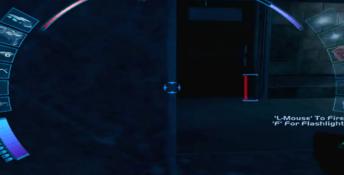
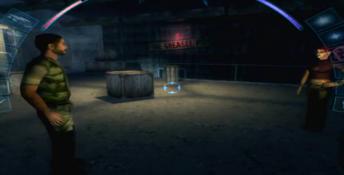
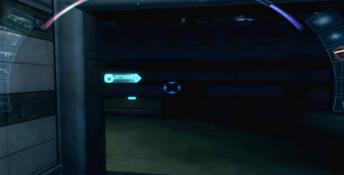

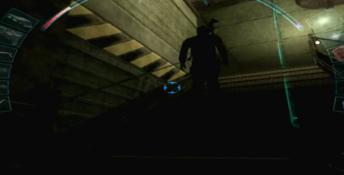
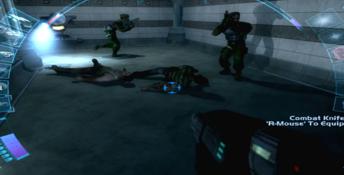





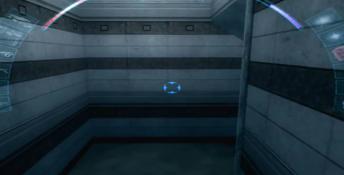
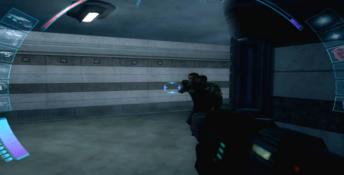
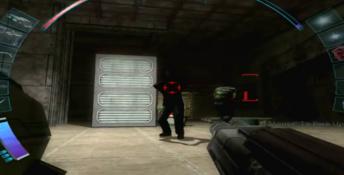
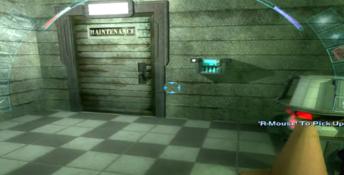
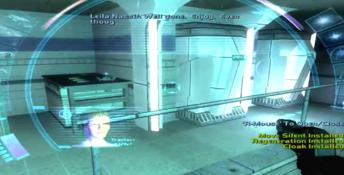
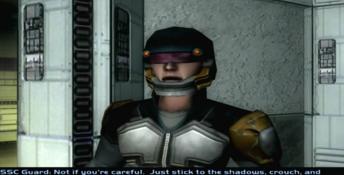

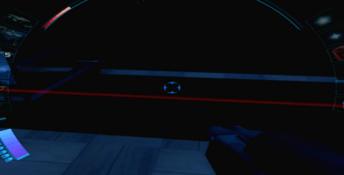
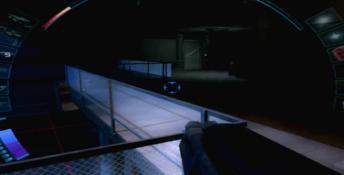
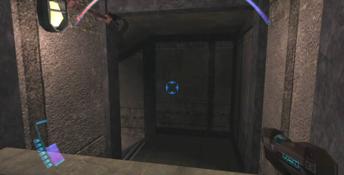
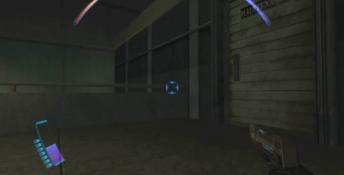
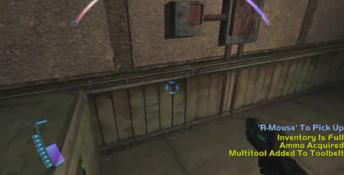
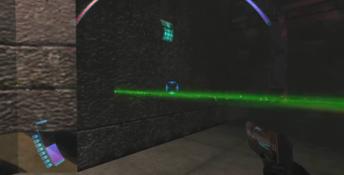
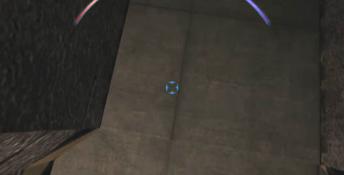
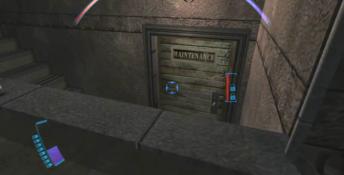
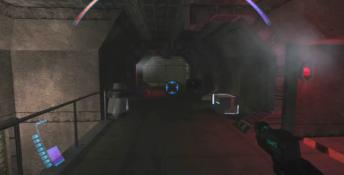

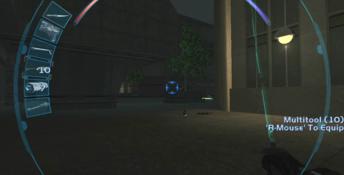
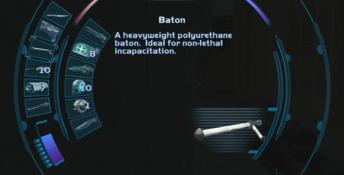
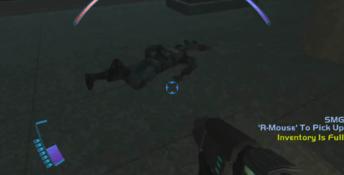
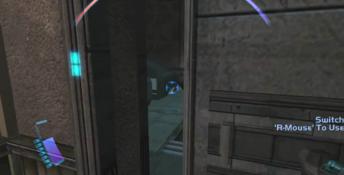

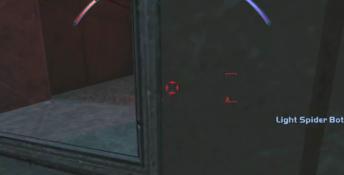
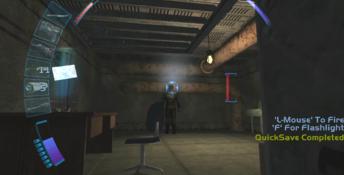
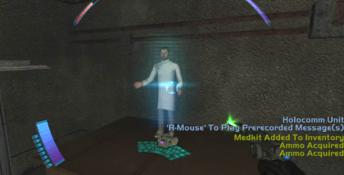
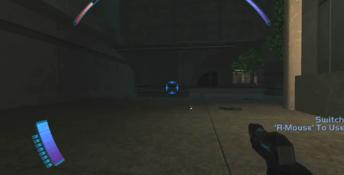
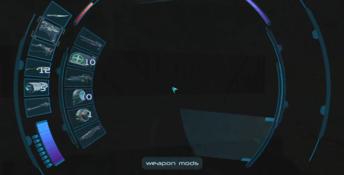
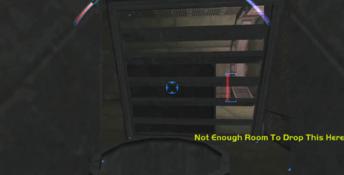
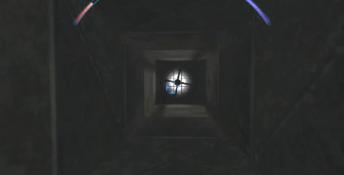
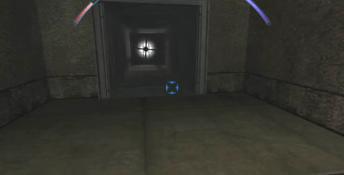
 Deus Ex
Deus Ex
 Deus Ex: Human Revolution
Deus Ex: Human Revolution
 Saints Row IV
Saints Row IV
 Payday 2
Payday 2
 Prototype 2
Prototype 2 Thief
Thief Thief: Deadly Shadows
Thief: Deadly Shadows
 Assassin's Creed: Syndicate
Assassin's Creed: Syndicate
 Assassin's Creed: Brotherhood
Assassin's Creed: Brotherhood
 Max Payne 3
Max Payne 3
 Half-Life 2: Episode Two
Half-Life 2: Episode Two
 Saints Row 2
Saints Row 2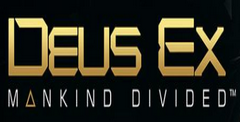 Deus Ex: Mankind Divided
Deus Ex: Mankind Divided
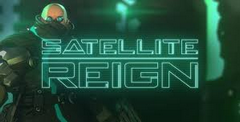 Satellite Reign
Satellite Reign